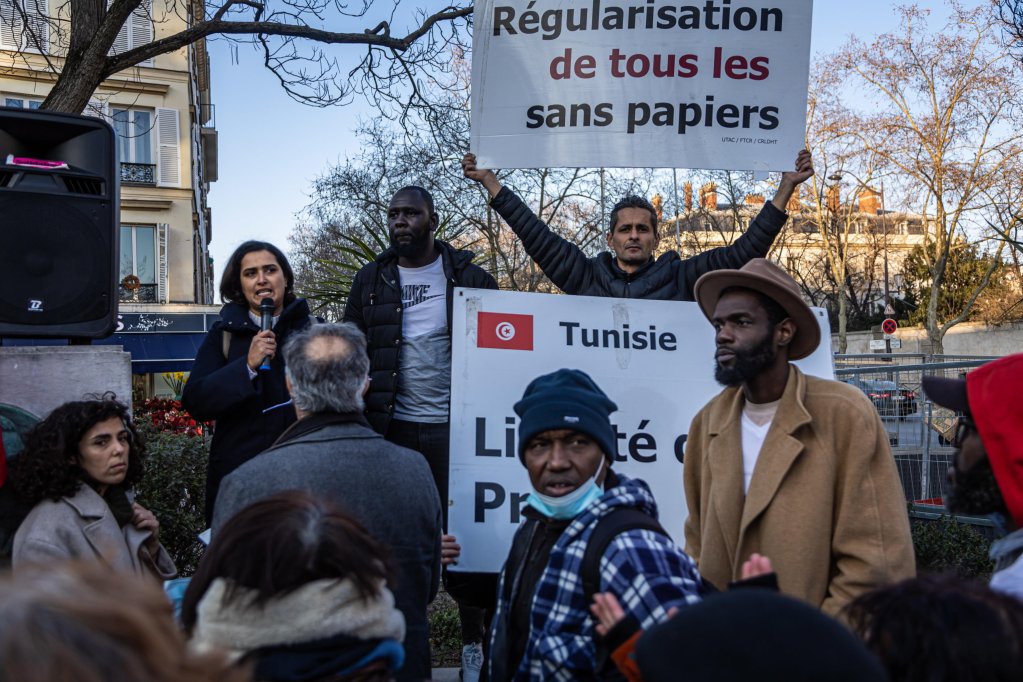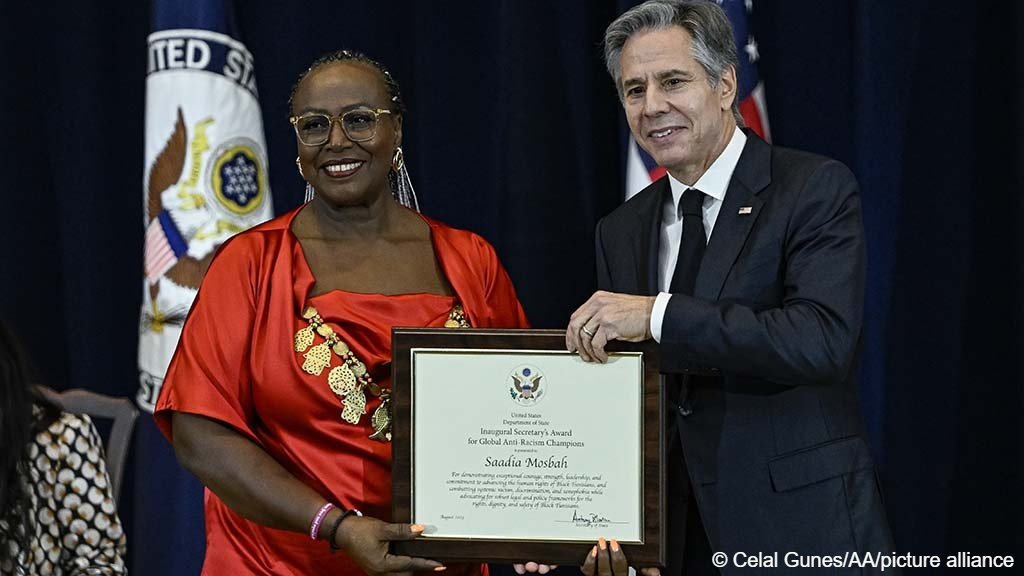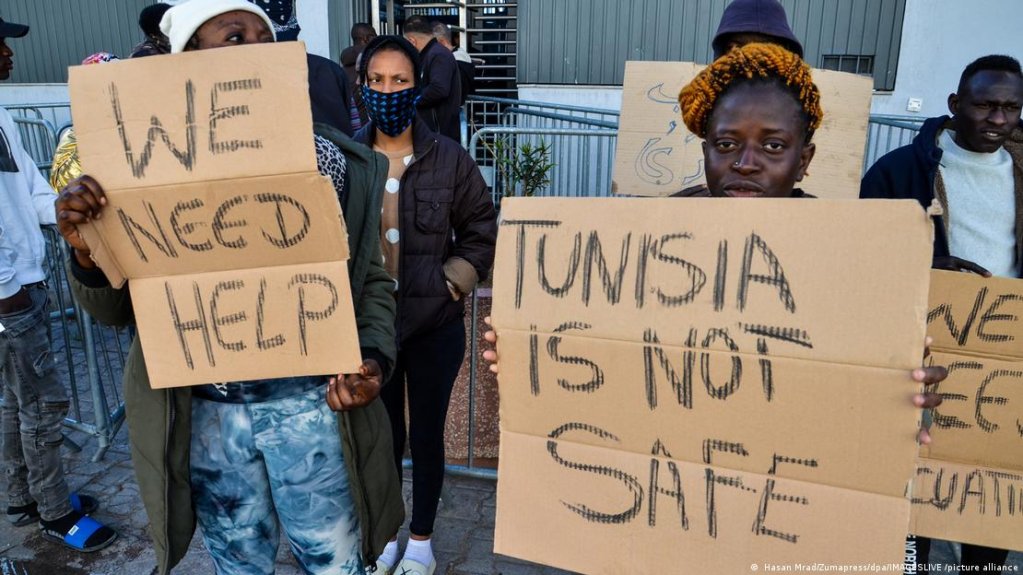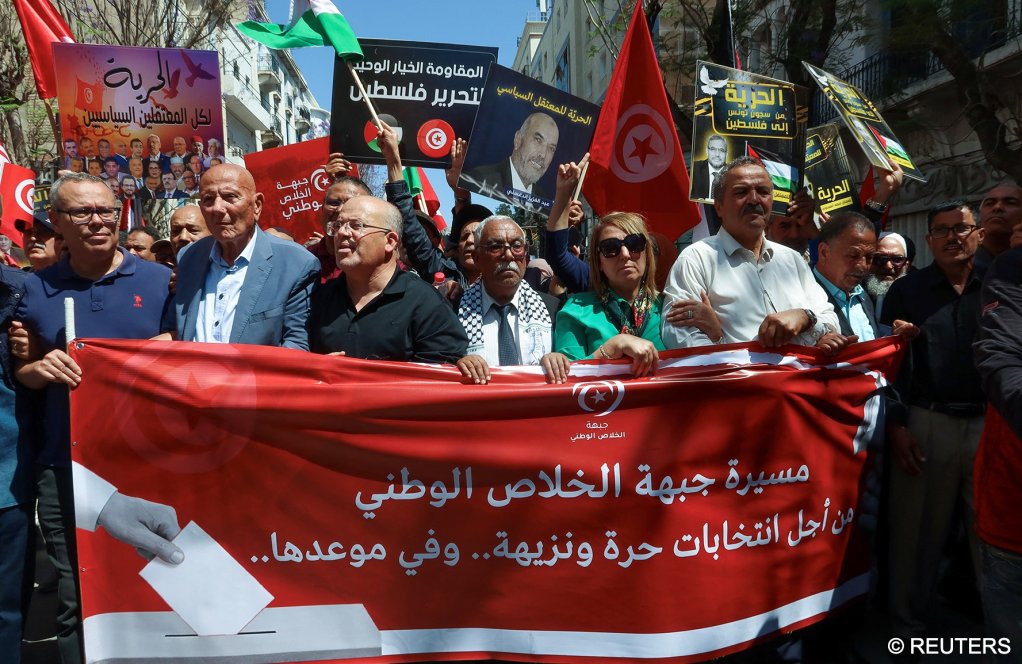At least two prominent activists for migrant rights in Tunisia, and some of their associates, were taken into custody on Saturday, in an "anti-terrorism" investigation in Tunisia.
On Saturday (November 16), at least two prominent activists for migrant rights in Tunisia and some of their associates were questioned by anti-terrorist investigators, reported the French news agency Agence France Presse (AFP).
Abdallah El Said, a Tunisian of Chadian origin, was questioned along with the secretary general and treasurer of his association, Children of the Medenine Moon, confirmed Romdhane Ben Amor, a spokesperson for the Tunisian Forum for Social and Economic Rights. Two officers of a bank that handles the association’s accounts were also detained by police for questioning, he said.
Tunisian authorities suspect that Said’s association received "foreign funds…to assist sub-Saharan migrants to enter illegally onto Tunisian soil," reported La Presse, a newspaper close to the Tunisian government.
El Said was first detained on November 12, reported the French international broadcaster rfi.
'Imprisoned for months with no trial'
The Tunisian writer Hatem Nafti, author of "Our Friend Kais Saied", told rfi that El Said had felt threatened for months. "He has been receiving visits from the authorities and the police for several months now. There are other heads of associations who worked with migrants who are also in prison and also experienced similar treatment," claims Nafti.
Nafti claimed that these people have been "imprisoned for months with no trial. It seems to take lawyers wanting to represent them months to receive instructions and their files, and the justice system is really no longer completely independent in Tunisia," claims Nafti. "So, I am not very optimistic for him. He is the perfect target for the authorities it would seem."
Read AlsoStuck in limbo: Tunisia's suspension of asylum procedures leaves migrants stranded

'New wave of even tougher repression'
Ben Amor described the detention as sending a "dangerous signal", in particular the transfer of the case to anti-terrorism investigators. "It is the first time authorities have used this against associations specializing in migration issues," explained Ben Amor. He described the detention and questioning as part of a "new wave of even tougher repression" against migration activists.
According to Ben Amor, three associations have been particularly targeted by the Tunisian authorities: Terre d'Asile, the Tunisian Council for Refugees, and the association Mmemty set up by the anti-racist campaigner Saadia Mosbah.
On November 18, his organization FTDES issued a press release in Arabic. The organization stated in the press release, that highlighted the arrests of various civil society activists and human rights campaigners, some of whom had called for demonstrations and protests.
"The current political power has been pushing its agenda forward in the last few weeks. They have been using state institutions to criminalize peaceful movements and protest. They are constraining the work of civil society actors, as well as politicial and union activities by targeting activists working in these spheres."
A committee in Tunisia that combines several NGOs and tries to fight against the criminalization of political ideas has launched an appeal supporting El Said. They say that his only "crime was to stand together with child migrants and refugees in the Medenine region."
Saied's anti-migration policy
Over the last couple of years, President Kais Saied's rhetoric regarding migration has become increasingly tough.
In May, he stated he didn't want Tunisia to become "a country of transit" for all those wishing to cross the Mediterranean to Europe and coming originally from sub-Saharan African countries. He called people who work for migrant rights organizations "traitors and mercenaries."
"It’s a message to all those working in solidarity with migrants," Ben Amor said.
In October, Saied was re-elected as President, though AFP reports that voter turnout was only 28.8 percent. Since he closed down parliament in 2021, his critics accuse him of becoming increasingly authoritarian.

Under an agreement between the EU and Tunisia in 2023, the EU has been providing funds to Tunisia to help them manage migration. The funds have been paid for both strengthening the coast guard and their equipment as well as more widely in development and employment projects in Tunisia. The money paid was intended to help Tunisia prevent more people from crossing the Mediterranean.
Critics though have pointed to the fact that EU funding rules state that all money should be spent in respect of fundamental human rights. Numerous bodies, associations and organizations have reported that that is not the case in Tunisia, where allegations of migrants being detained and mistreated, as well as rape and violence while in Tunisian custody, or after being pushed back to the borders with Libya and Algeria, have been fairly commonplace.
Read Also
Tunisia: More than a dozen bodies wash ashore
Increase in arrests of sub-Saharan African migrants
According to recent reports, it is not just activists supporting migrants that are being targeted. In the last few weeks, the number of sub-Saharan African migrants being arrested on Tunisian streets has also increased, reports InfoMigrants French.
Once they are stopped by police, they are then accused of being in the country without the correct permits and are sentenced to several months of detention. According to some of InfoMigrants’s sources in the country in the migrant community, the situation has got so bad now that the prisons are "full of sub-Saharan African migrants."
Ibrahim* a 23-year-old Guniean told InfoMigrants French that he had just been released from a prison in Mornaguia, about 20 kilometers west of the capital Tunis. He says he was picked up at the end of October on the streets of Tunis. "I was just waiting for a taxi to return home when the police stopped me," Ibrahim said.
Another 43-year-old man from Ivory Coast, Koffi* said that in his case police turned up at the place where he worked and arrested him. He admits that at the carpentry workshop where he was employed, he was not on the books and paid "under the table."
Read AlsoEU lacks transparency on Tunisia human rights, says ombudsman
'Migrants are stopped on the streets'
The Secretary General of the Association Federation of Ivorians in Tunisia (FACI), Sakia Traoré, confirms that Koffi’s experience is not unusual. "Migrants are stopped in the streets, on public transport, in public squares or at stations, in the towns of Sousse, Sfax, or Tunis, it is happening right across the country."

Ibrahim calls it "a manhunt." The police, he claims, "are targeting areas where they know sub-Saharan African migrants live, and then carry out raids. Several of my friends have suffered the same experience I have, and some have even been sent to prison two or three times."
Another Ivorian man, Jean* who is an asylum seeker in Tunisia says sometimes the police will turn a blind eye if you pay them something. He claims he gave around 100 dinars (about 30 euros) to police officers dressed in civil clothes so they wouldn’t arrest a friend of his. Soon after, “I did the same thing for two women in my area, for the same amount of money.”
The prison where they end up being sent, claims a report by the NGO Lawyers without Borders, "is one of the worst in Tunisia." There are around 60 to 70 prisoners in one cell, and inmates tend to spend a few days there before being brought before a tribunal.
'What is your name? Why did you enter Tunisia?'
Their audience with the judge is very short, reports InfoMigrants French, and the migrants are mostly asked just three questions. "What is your name? Why did you enter Tunisia? And Do you have a stay permit?"
At his audience, Ibrahim said that he went to the tribunal along side around 30 other sub-Saharan African migrants, including two minors, about a dozen women, including one who was eight-months pregnant. Everyone without exception, he says, was found guilty of irregular migration and stay on Tunisian territory.

Once found guilty, migrants can expect a prison stay of between two and six months. The cells in the prisons are overcrowded, with around 80 people in one cell reportedly. Ibrahim told InfoMigrants French that in his cell there weren’t just sub-Saharan migrants found guilty of being in Tunisia without papers, but also Tunisians who had been found guilty of drug crimes, rape and violence.
Read AlsoConcerns over 'safety of migrants in Tunisia' expressed in new report commissioned by UN
'I am more and more scared'
Life behind bars, reports Ibrahim, is regulated by the prisoners. A leader is appointed in each cell, normally a Tunisian and they tell everyone else what to do. Sub-Saharan African migrants will normally be assigned the worst places to sleep, near the toilets perhaps, and will be forced to sleep five or six to a bed, instead of two like the Tunisian inmates. Sometimes, when the cells get really full, the sub-Saharans will be forced onto the floor.
Ibrahim said that Tunisia is making him feel "more and more scared." Prior to his stay in Tunisia, he says he was in Libya. While the guards there were violent, he thinks Tunisia is morally worse. "The suffering I saw in prison in Tunisia, I never saw in Libya."
*Name changed to protect their identity
*Additional reporting by Leslie Carratero for InfoMigrants French
